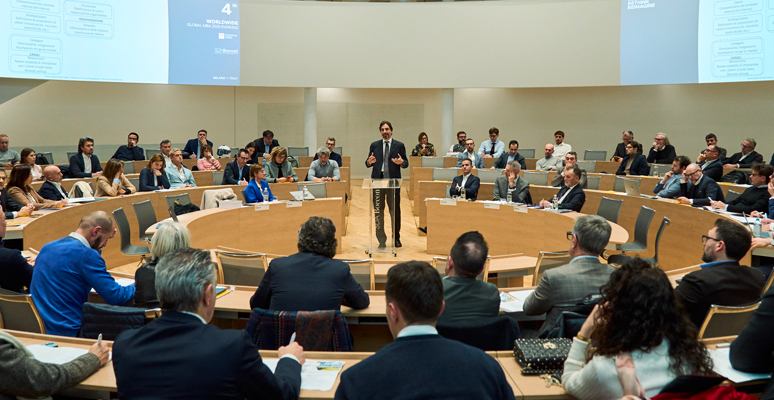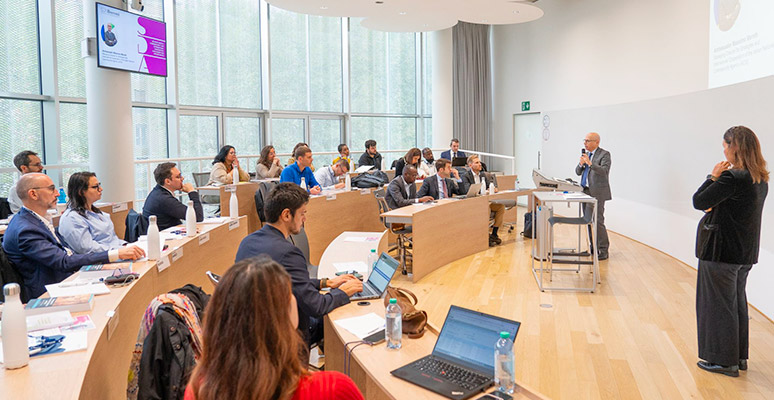
- Start Date
- Duration
- Format
- Language
- 5 may 2025
- 4 days
- Class
- Italian
Offrire le conoscenze e competenze relative all’imprenditorialità sociale e al management del terzo settore per nuovi modelli di business sostenibili.
Despite being the first native digital generation, Gen Z, i.e. the cohort of individuals born between 1996 and 2010, has turned out to be wary of new technologies that are perceived to be addictive. Moreover, while having experienced digital access to resources and social relationships from their childhood, Zoomers exhibit also different priorities and interests when it comes to the choice about moving around. Companies willing to tackle future mobility challenges should probably reconsider their approach if they want to attract people in this age bracket, going beyond the stereotype.
SDA Bocconi School of Management’s Smart & Sustainable Mobility Lab, mobiUS, surveyed 8,137 individuals between 18 and 30 years old (5,227 Gen Z and 2,910 Millennials), scraped a total of 52,239 and 76,208 captions from Instagram and TikTok using proprietary machine learning algorithms and conducted 42 in-depth interviews with respondents from 15 countries to draw an original identikit of Gen Z.
“Gen Z is embedded in a unique socio-cultural context, shaped by geopolitical, health-related, and climatic uncertainty, rapid technological advancements, global interconnectedness, and unprecedented access to information,” said Fabrizio Zerbini, mobiUS Lab’s Scientific Director. “This can lead to a certain degree of anxiety, and the ability to soothe it can be key to a successful commercial offer.”
The study singled out the four most shared core values among Gen Z: simplicity, stability, sociality, and sustainability.
Simplicity. In the realm of mobility, 36.2% of Gen Z individuals surveyed answered that the availability of one app for all service providers would be essential, and 57.4% of them said they search very often for information about the shortest route.
Stability. As a result of the pandemic, economic shocks, and geopolitical instability, Gen Z individuals show an inclination toward risk aversion in their decision-making, placing heavy emphasis on routines.
Sociality. This heavily impacts Gen Z’s choices and daily schedules. The opportunity to spend quality time in person with their loved ones and to live worthy experiences together is part of their definition of “luxury” and can impact their decision of where to live.
Sustainability. The study interestingly found a controversial and contradictory relationship between Gen Z and this value. Individuals strongly affirm their commitment to sustainability, but they don’t always act accordingly. They believe individuals can only have a very limited impact, thus seeming to outsource sustainability to companies and policymakers. Only when they create their own family with children, Gen Z individuals start behaving more sustainably.
“The evidence we collected shows that Gen Z individuals change their behavior not only according to their parental status but also according to whether they are students or workers. This suggests the need for further analysis and, perhaps, for a reconsideration of the generations narrative,” concluded Professor Zerbini.
The report Gen Z and Future Urban Mobility was authored by Stefania Borghini, Armando Cirrincione, Laura Colm, Aakanksha Gaur, Alessandra Ricci, and Francesco Sorbino.
SDA Bocconi School of Management

Offrire le conoscenze e competenze relative all’imprenditorialità sociale e al management del terzo settore per nuovi modelli di business sostenibili.

Progettare strategie di marketing efficaci integrando l'approccio tradizionale e quello digital per valorizzare e personalizzare l'esperienza del cliente.

Definire e sviluppare strategie di mercato vincenti in contesti ipercompetitivi e iperconnessi, rafforzando creatività e metodi di analisi della domanda.

